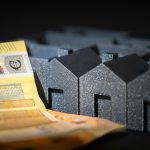The urban landscape of the UK is evolving, and with it, the utilization of office space. As remote work becomes more prevalent, many companies are downsizing or entirely eliminating their physical office spaces. This trend leaves numerous office buildings underused or completely vacant, posing a unique opportunity for property developers and investors. Converting these unused UK office spaces into residential units brings a slew of financial benefits. This article delves into these advantages, offering insights for stakeholders considering such a transformation.
Addressing the Housing Shortage
The UK’s housing crisis is no secret. For years, the demand for affordable and adequate housing has outweighed supply. This shortage poses significant challenges for individuals and families seeking homes, particularly in urban areas where the problem is most acute. Converting unused office spaces into residential units offers an innovative solution to this issue, creating a win-win scenario for both property developers and the broader community.
A découvrir également : How to identify high-growth potential areas in the UK’s property market?
Alleviating Pressure on Urban Housing Markets
Repurposing office spaces into residential units helps mitigate the pressure on urban housing markets. By increasing the supply of available homes, the conversion process can help stabilize or even reduce housing costs. Moreover, creating residential units in prime urban locations can make city living more accessible, encouraging a more balanced distribution of residents across urban areas.
A lire également : What are the key considerations for managing a property portfolio across different regions in the UK?
Capitalizing on Prime Locations
Many unused office buildings are situated in coveted locations, often near public transportation hubs, commercial centers, and recreational areas. Converting these spaces into residential units allows developers to capitalize on the desirability of these locations. This not only adds value to the property but also attracts a higher caliber of potential tenants or buyers willing to pay a premium for convenience and accessibility.
Enhancing Community Diversity
Increasing the number of residential properties in urban centers can promote a more diverse community. Office buildings converted into residential units can accommodate various demographics, from young professionals to families and retirees. This diversity fosters a more vibrant, inclusive community, benefiting local businesses and contributing to the area’s overall economic health.
Maximizing Property Value
Property value is a critical consideration for developers, investors, and landlords. Converting unused office spaces into residential units can significantly enhance property value, providing substantial financial returns in both the short and long term.
Higher Rental Yields
Residential units often generate higher rental yields compared to office spaces, particularly in areas with high demand for housing. By transforming underutilized office buildings into desirable residential properties, developers can secure a steady, lucrative income stream. This conversion is particularly appealing in cities where the demand for office space has declined due to the rise of remote working practices.
Appreciation of Property Value
Residential properties, especially those in prime urban locations, tend to appreciate over time. Investing in the conversion of office spaces into residential units can therefore result in significant capital gains. The initial investment required for conversion can be offset by the long-term appreciation of the property, making it a financially sound decision for developers and investors.
Tax Incentives and Grants
The UK government offers various tax incentives and grants for property developments that address the housing shortage. Developers converting office spaces into residential units may qualify for these benefits, further enhancing the financial viability of such projects. These incentives can include reduced rates of Value Added Tax (VAT) and grants for sustainable or affordable housing projects.
Sustainable Development and Cost Efficiency
Sustainability is becoming increasingly important in the property development sector. Converting office spaces into residential units aligns with sustainable development principles and offers several cost efficiencies.
Reducing Environmental Impact
Repurposing existing buildings minimizes the environmental impact associated with new construction. By retaining the core structure of an office building, developers can significantly reduce the carbon footprint involved in creating residential units. This approach conserves materials and energy, contributing to broader environmental sustainability goals.
Cost Savings on Construction
Converting an existing structure is generally more cost-effective than building from scratch. Developers can save on various construction-related expenses, including materials, labor, and time. These cost savings can be redirected towards enhancing the quality of the residential units or other value-adding aspects of the development.
Attracting Green-Conscious Buyers and Tenants
Sustainable properties are increasingly attractive to green-conscious buyers and tenants. By promoting the eco-friendly aspects of converted residential units, developers can appeal to a growing market segment that values sustainability. This not only enhances the marketability of the property but also justifies higher rental or sale prices.
Revitalizing Urban Areas
Urban revitalization is a key benefit of converting unused office spaces into residential units. This transformation can breathe new life into underused or neglected areas, creating vibrant, thriving communities.
Stimulating Local Economies
New residential developments can stimulate local economies by increasing demand for goods and services. Residents of converted office buildings contribute to the local economy by frequenting nearby shops, restaurants, and service providers. This surge in economic activity can lead to job creation and business growth, revitalizing the surrounding area.
Improving Urban Aesthetics
Converting outdated or vacant office buildings into modern residential units can significantly improve urban aesthetics. Well-designed residential properties can enhance the visual appeal of an area, making it more attractive to residents, visitors, and investors. This aesthetic improvement can also boost property values in the surrounding area, creating a positive ripple effect.
Enhancing Public Safety
Occupied buildings contribute to public safety by reducing the likelihood of vandalism and neglect associated with vacant properties. When office spaces are converted into residential units, the presence of residents can deter criminal activities and foster a sense of community. This enhanced safety benefits both new residents and the broader community, making the area more desirable for living and investment.
In conclusion, the financial benefits of converting unused UK office spaces into residential units are manifold. This strategic move addresses the pressing housing shortage, maximizes property value, promotes sustainable development, and revitalizes urban areas. As remote work trends continue to evolve, the opportunities for such conversions are likely to grow, presenting attractive prospects for developers, investors, and communities alike.
Transforming underused office spaces into residential units is not only a financially sound decision but also a contribution to solving urban housing challenges. By capitalizing on prime locations, generating higher rental yields, and benefiting from tax incentives, stakeholders can achieve substantial financial returns. Moreover, sustainable development and urban revitalization further underscore the value of this approach, making it a compelling option for the future of UK property development.











